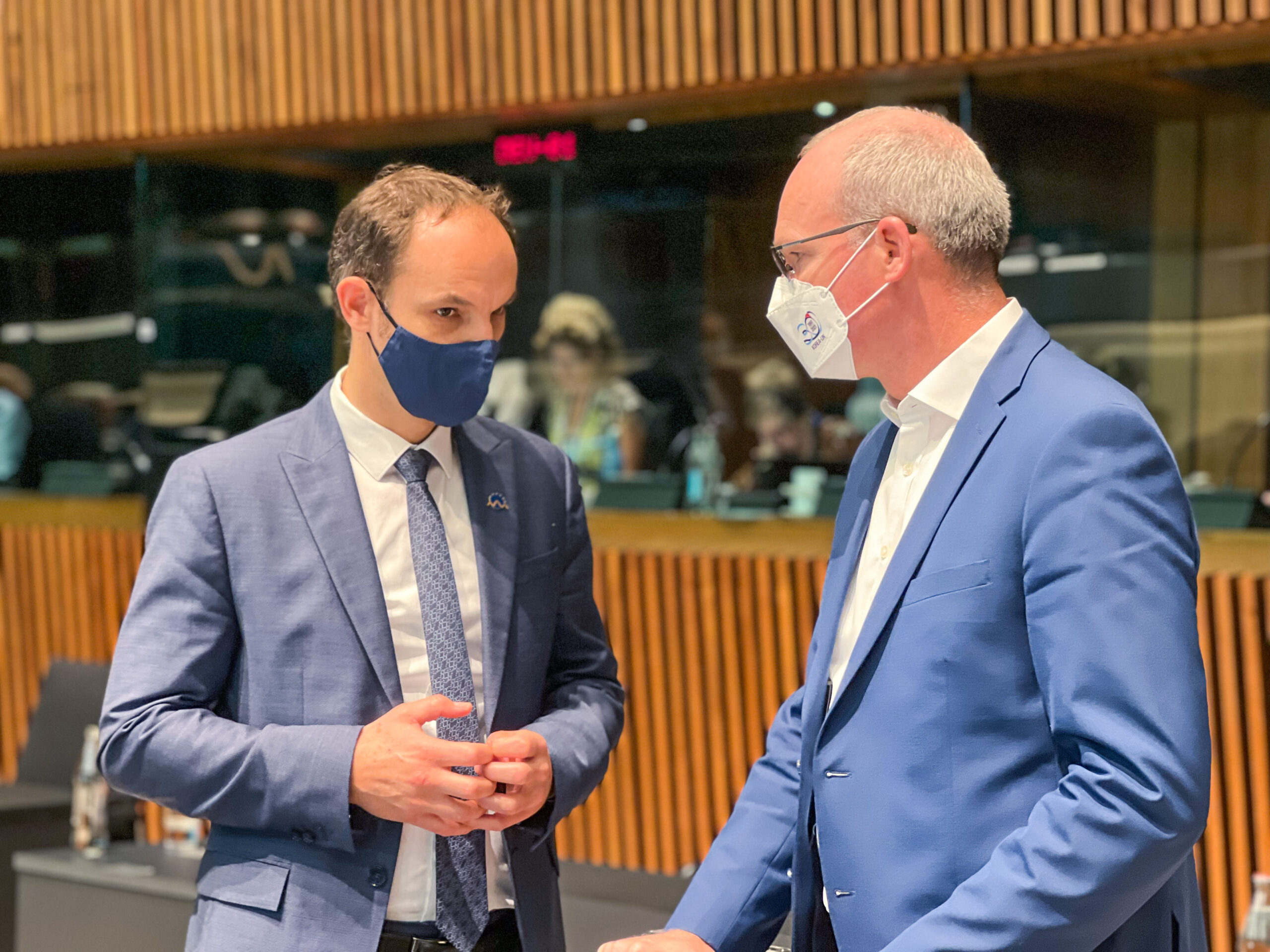
By: UKOM
Minister of Foreign Affairs Anže Logar today attended the regular meeting of the Foreign Affairs Council in Luxembourg headed by Josep Borrell, High Representative of the European Union for Foreign Affairs and Security Policy. In their discussions, the ministers focused on the Gulf, the Eastern Partnership and the situation in Ethiopia and Nicaragua.
The day began with an informal breakfast at which the ministers were joined by Libyan Minister of Foreign Affairs Najla El-Mangoush. The discussion focused on the current situation in Libya, the search for synergies to strengthen EU-Libya relations and the EU’s provision of support. Before the beginning of the Foreign Affairs Council, Minister Logar co-signed the EU-Qatar air transport agreement.
At the beginning of the debate on the Gulf, the focus was placed on further strengthening the relations with the Gulf States and the EU’s role in ensuring stability in the region. High Representative Borrell reported on a recent visit to the region, noting that the Gulf States had expressed interest in strengthening cooperation with the EU in many areas. “It is important to identify key mutual interests and realistic goals in dialogue with the Gulf States, also in relation to the foreseen Joint Communication,” said Minister Logar.
In light of the preparations for the Eastern Partnership Summit in Brussels on 15 December 2021, the ministers discussed ways to strengthen the common EU approach to the Eastern Partnership, focusing on its programme priorities after 2020 with an emphasis on reforms, resilience and post-pandemic recovery, and the substantive aspects of the Joint Declaration as one of the expected outcomes of the Summit. Slovenia supports the concept of resilience as the overarching theme of the future Eastern Partnership agenda as it goes hand in hand with the priorities of the Slovenian Presidency of the Council of the European Union. An ambitious Economic and Investment Plan creates an enormous potential and impetus for sustainable post-pandemic socio-economic recovery.
In the debate on Ethiopia, the ministers once again underlined the humanitarian and security situation in the country, particularly in the northern Tigray region. They explored possible ways for the EU to achieve a ceasefire and alleviate the humanitarian situation, calling for immediate and unimpeded access to humanitarian aid, compliance with international humanitarian law and foreign troops withdrawal, and condemning the expulsion of seven UN officials. Minister Logar noted that Slovenia is seriously worried about the humanitarian situation in the country and condemns the decision of the Ethiopian government to expel seven United Nations officials, adding that “We also stress the need for hostilities to stop and that the humanitarian bridge should not be blocked.”
The last part of the meeting was devoted to the current situation in Nicaragua, which is facing repression of the political opposition, media and NGOs in the run-up to the presidential and parliamentary elections. The ministers tried to find an appropriate EU approach for Nicaragua after the elections, as there is a justified concern that they will not meet international standards.